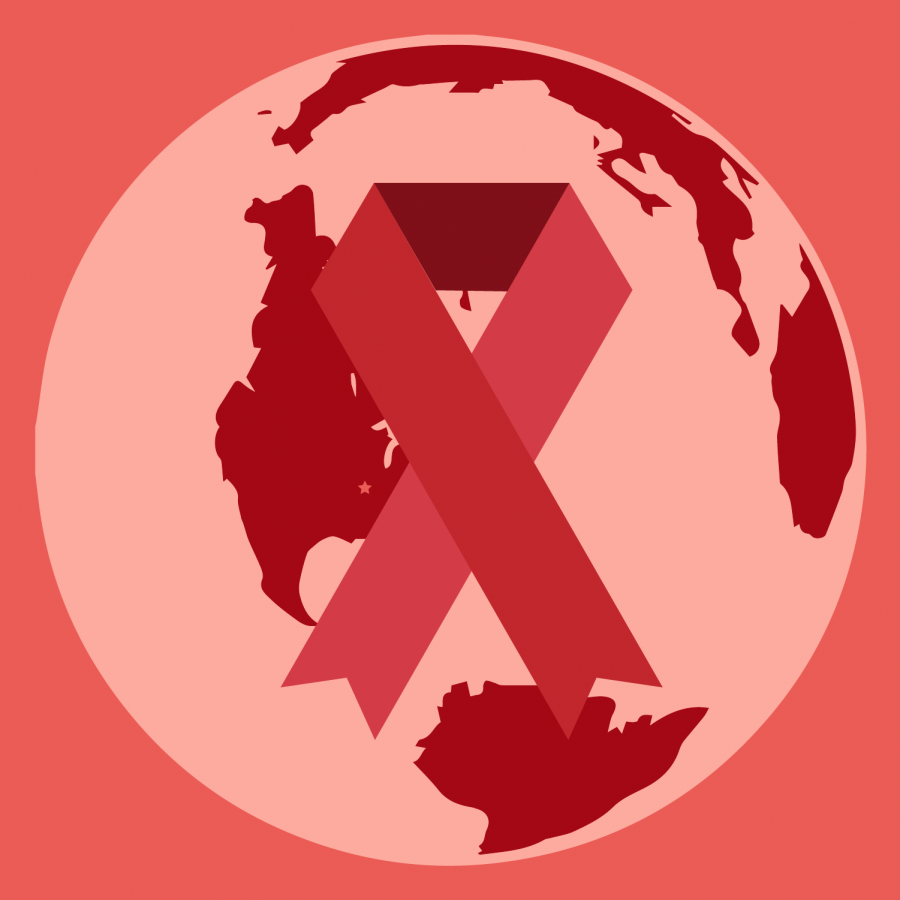Course aims to raise HIV/AIDS awareness
November 5, 2018
Kaitlyn Simons, freshman in LAS, and each member of her group project have been going to McKinley Health Center and collecting a package of condoms every two weeks.
This is part of a project to fulfill the “external engagement” requirement of their class, GCL 146: Fundamental Causes of Disease: The HIV/AIDS Pandemic. The end of the project will result in an event Friday from 11 a.m. to 2 p.m. on the Main Quad to raise awareness of the disease.
Simons said she took the class because there’s generally a lot of confusion surrounding this topic.
“People don’t really have a solid idea of what HIV/AIDS is, the groups that are affected by HIV/AIDS, how it’s spread,” Simons said.
This class was developed for several years by sociology professor Cynthia Buckley. Buckley created the undergraduate course while she was a professor at the University of Texas, Austin. When she came to the University, she wanted to try teaching it again.
Get The Daily Illini in your inbox!
Buckley taught it first as a topics course in sociology. She was then invited to teach it as part of the vice provost’s Grand Challenge Learning Initiative.
This initiative was designed to revitalize and re-envision undergraduate education, Buckley said.
As a result, the class is capped at 25 freshmen. Buckley said she strays away from exams and focuses on experiential learning. The class is also interdisciplinary, with students pursuing engineering, medical school, law school, history and more, according to Buckley.
The class looks at HIV/AIDS using Buckley’s sociology background. It looks at transmission, different strands of HIV and geographical spread as well as the fundamental causes of disease.
“We are really focused on how the HIV/AIDS pandemic shows us how social factors are the real drivers in international pandemics,” Buckley said.
An important part of the course is the external engagement requirement.
This assignment requires students to bring the knowledge they gain from this class into their communities, whether they be local, national or global.
“It’s the idea of taking the knowledge gained and making it of use to the larger community,” Buckley said.
Students have several options to get involved. They can volunteer for organizations working to raise awareness of HIV/AIDS. Some students write op-eds to raise awareness. This year, three groups of students are working together to host an event on the quad.
One group will be hosting a bake sale to raise money for an AIDS orphan school in Uganda. Another group will be having a trivia quiz on information regarding HIV/AIDS with small prizes. The final group, Simons’ group, will be passing out free condoms to which they attached facts about HIV/AIDS and safe sex.
The three projects are supposed to raise awareness for three different areas of the issue.
The bake sale brings attention to the global issues and the scale of the pandemic, the trivia quiz raises knowledge about how the disease can affect communities at home and the condom distribution directly interacts with students to make them aware of their resources and how they can be taking steps to protect themselves from this disease.
Aidan Berg, freshman in AHS, is volunteering for this event. For his actual project, he decided he would write a letter to JB Pritzker.
He said Pritzker has made several campaign promises regarding HIV/AIDS and LGBTQ youth, but he thinks those are promises that are just as easy to forget as they are to make. In addition to his letter, Berg is going to be volunteering at the awareness event on Friday.
Berg talked about how learning about diseases is not just a medical concern.
“Beyond the public health side of it,” he said, “there’s a lot of focus on stigma and discrimination and how that influences how disease spreads.”
The groups are hoping they can start a conversation on campus about this pandemic. Buckley said the U.S. still has over 40,000 new cases of HIV infection every year. Simons said the young adult population is most susceptible to getting HIV/AIDS.
Part of this project is to destigmatize condoms and discussions about STIs. Buckley said it is really just another health decision that people need to make.
“You brush your teeth, right?” Buckley said. “If you choose to be sexually active, there are also safe health procedures you can follow and you should consider.”
Berg said while they are hoping to make a splash and reach a lot of students, if they can educate and influence just one person, it will be a success.
The class spends a lot of time talking about how those already at a disadvantage within society are more susceptible to diseases. Berg wants to draw attention to this problem through this event.
“Once people start talking, stigma and discrimination erode,” he said. “They disappear because people are actually willing to talk about it.”







